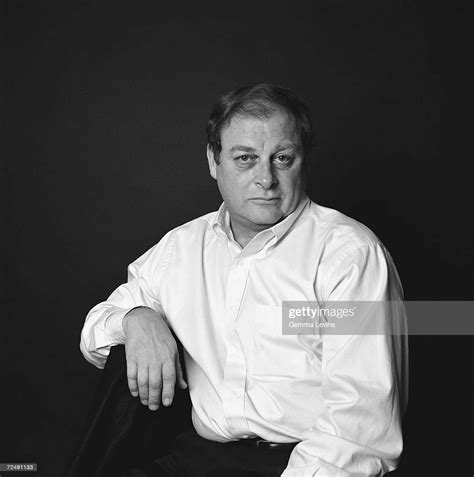A Quote by Martin Amis
I say, 'If I had a serious brain injury I might well write a children's book', but otherwise the idea of being conscious of who you're directing the story to is anathema to me, because, in my view, fiction is freedom and any restraints on that are intolerable.
Related Quotes
People ask me if I ever thought of writing a children's book. I say, 'If I had a serious brain injury I might well write a children's book', but otherwise the idea of being conscious of who you're directing the story to is anathema to me, because, in my view, fiction is freedom and any restraints on that are intolerable.
The format of the book was the idea of my wonderful editor, Stephen Segal. Stephen and I had worked together before, on projects for the Interstitial Arts Foundation, and when he got the idea for an accordion-style book, he called and asked if I could write the story for it. I told him that I would love to try! And I knew it had to be a love story, because that's the sort of story you really want to hear from both perspectives. I mean, imagine if Pride and Prejudice were told from Darcy's perspective as well as Elizabeth's. It would be quite a different story!
I started writing by doing small related things but not the thing itself, circling it and getting closer. I had no idea how to write fiction. So I did journalism because there were rules I could learn. You can teach someone to write a news story. They might not write a great one, but you can teach that pretty easily.
I arrived at my way of "working" as a way of visually approximating what I feel the tone of fiction to be in prose versus the tone one might use to write biography; I would never do a biographical story using the deliberately synthetic way of cartooning I use to write fiction. I try to use the rules of typography to govern the way that I "draw," which keeps me at a sensible distance from the story as well as being a visual analog to the way we remember and conceptualize the world.
What had happened was this. When still young, I had gotten the idea from somewhere that I might be able to write... Maybe the deadly notion came from liking to read so much. Maybe I was in love with the image of being a writer. Whatever. It had been a really bad idea. Because I couldn't write, at least not by the bluntly and frequently expressed standards of anyone in a position to offer any encouragement and feedback.
I more seriously considered publishing it under a pseudonym than I considered publishing it as fiction. I think the decision to write it as nonfiction happened at the very outset of the process, because the overwhelming impetus for writing this book was to understand what the experience meant, and to override my own reductions and rationalizations, whatever story I had that was not true. It didn't sit well with me and I needed to answer that. That's sort of the reason I write everything.
The editor, Stephen Segal, actually called me with the idea of creating an accordion book [ "The Thorn & The Blossom"], and asked if I could write a story for it. I was so intrigued! I immediately knew that it had to be a love story told from the points of view of the two main characters. Right away, I started working on a proposal. And once I had my main characters, Brendan and Evelyn, it was as though they started telling me their stories.
A lot of my clients say they don't deserve to mope about their sad little memories while children are starving in India. I say that just because your broken arm isn't as serious as someone else's gut wound, that doesn't mean your injury isn't excruciating or doesn't require attention. If you want to help the Indian children, or make the world a better place in any other way, you have to start by becoming whole yourself.
What I like about mixing fiction and non-fiction is being able to fully explore an idea without being bound by genre. If you scratch under any surface there are histories for everything, aren't there? And there's unknown women's history in everything, too. It all gets simplified because its complexity is more than you can stand sometimes. So you need full freedom of expression.





































